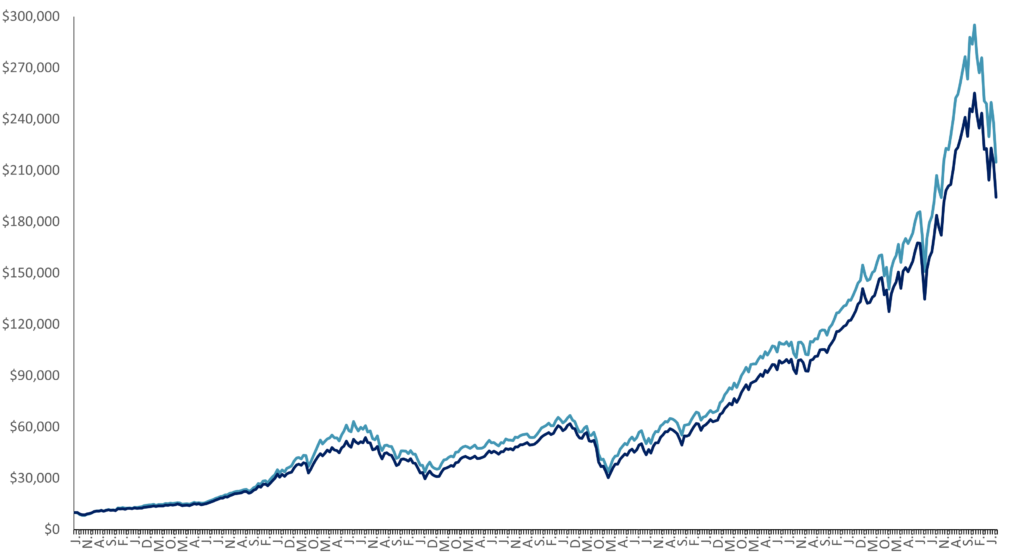Sustainable investing has become a widely accepted approach to generating competitive investment returns while having a positive global impact on people and planet. According to the US SIF Foundation, $17.1 trillion are in sustainable investment strategies as of the beginning of 2020, a 42% increase from 2018.1 This represents nearly 1/3 of total U.S. professionally managed assets. Globally, sustainable investment assets are expected to exceed $53 trillion by 2025.2 This incredible growth begs the question: How and why are assets invested in a sustainable and responsible manner?
Many people like to have a sense of purpose with their consumer purchases and investments. Sustainable investing can satisfy this desire by using the power of private capital to make positive changes in our world. Sustainable investing can take many forms, but at its most basic level, it integrates Environmental, Social and Governance (ESG) criteria into the investment selection process. For this reason, many in the media have simply tagged it “ESG investing.” However, sustainable investing is much broader than simply ESG integration.

Large institutional investors (like state pension funds, endowments, foundations, etc.) and money managers (like mutual funds) incorporate ESG data into their investment process mainly to identify risks and opportunities that would not be considered based purely on traditional financial metrics. For example, a consumer goods company might be subject to reputational risks if they are found to be using forced labor in their global supply chain. An oil/gas company may gain a significant competitive advantage if they build out their portfolio to include renewable energy. A financial services company may be subject to regulatory risks if it is not transparent with its accounting and corporate governance procedures.
While integrating ESG data into an investment process is a great start, positive global changes can occur through active shareholder engagement. When an investor owns shares of a company, that investor earns the opportunity to have a dialogue with corporate management about further improving their environmental, social or governance policies. There are some wonderful examples of the positive outcomes from shareholder engagement:

- In order to curb climate change and prevent loss of habitat for endangered species, investors have received commitments from large corporations to reduce deforestation caused by the unsustainable production of palm oil, soy, cattle, and timber in Asia and Latin America.3
- Investors have encouraged companies to develop procedures to audit their suppliers on specific human issues, such as labor rights, decent work with equal pay, health and safety, and gender balance throughout all levels of their supply chain. Many of these concerns are found in countries defined as low-cost, including India, China, Vietnam, Mexico, Brazil and others.4
- Companies have responded to investor engagement to align executive incentives with environmental sustainability goals.5
In addition to shareholder engagement, there are investments that are specifically created to have a positive social or environmental impact. Many of these “impact investments” are found in the fixed income and private equity markets. For example, there are investment opportunities in organic farming, sustainable timber, and “green bonds.” Fixed income investments can have direct and measurable societal outcomes. For example, specific mortgages can be used to increase the availability and access to affordable, sustainable, and high-quality housing and reduce the rent burden for low- to moderate-income populations globally.6
In one of the most stunning examples of an impactful corporation, Patagonia’s owner, Yvon Chouinard, recently transferred his family’s ownership of the company to two new entities, including a nonprofit organization that will use the businesses’ annual dividend distributions to fight climate change.7 Patagonia has long been a shining example of how a successful business can be managed sustainably and responsibly, with a mission much greater than simply serving its shareholders, but this is an amazing act of commitment to our planet!
To be sure, there are critics of sustainable investing. Some have surmised that ESG investing cannot possibly generate competitive investment returns because the approach does not focus exclusively on shareholder value creation. Rather, like Patagonia, sustainable investing focuses on stakeholder capitalism. This criticism has proven to be unfounded. As an example of the potential investment merits of sustainable investing, the MSCI KLD 400 Social Index8 was created in 1990 to track companies with high ESG ratings, while excluding companies whose products may have negative social or environmental impacts. From its inception through 9/30/2022 (over 32 years), the KLD 400 Social Index has generated a return of +9.95% vs. the S&P 500 Index (a common index of U.S. stocks) return of +9.61%. So, an investment of $10,000 in the MSCI KLD 400 Social Index in June of 1990 would now be valued at $214,932. The same investment in the S&P 500 Index would now be worth $194,384.

*KLD 400 Social Index has generated a return of +9.95% vs. the S&P 500 Index return of +9.61%
Sustainable, responsible and impact investing has generated strong interest in recent years for good reason. Investors now have access to many investment products that can generate a “triple bottom line” of people, planet, and profits.
1 US SIF Foundation Report on US Sustainable and Impact Investing Trends 2020
2 Bloomberg Intelligence, February 23, 2021
3 www.greencentury.com/impact/
4 Saturna Sustainable Funds Impact Report 2021
5 Impax Asset Management Engagement and Policy Advocacy Report 2022
6 Nuveen Global Fixed Income Impact Report 2021
7 Letter by Yvon Chouinard, September 14, 2022
8 Formerly known as the Domini 400 Social Index
To view the entire issue of Person & Planet where this article is featured, you can find the digital version here and the print on demand version here.
-Greg Wait

